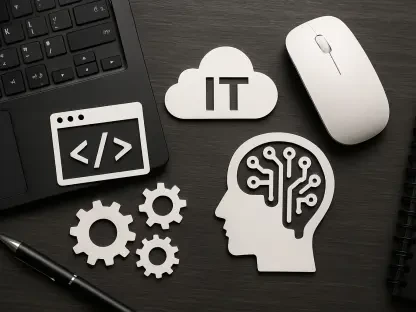I’m thrilled to sit down with Desiree Sainthrope, a distinguished legal expert with a wealth of experience in drafting and analyzing trade agreements. With her deep expertise in global compliance and a keen interest in emerging fields like intellectual property and the impact of AI, Desiree brings a unique perspective to the evolving landscape of data protection in Nigeria. Today, we’ll explore the nuances of the Nigeria Data Protection Act (NDPA) 2023, the recent Guidance Notice from the Nigeria Data Protection Commission (NDPC), and what these developments mean for businesses and individuals alike. Our conversation will touch on the importance of safeguarding personal data, the classification of data handlers, key industry impacts, and the broader implications for compliance and privacy in Nigeria’s digital era.
How has the growing focus on personal data protection in Nigeria shaped the legal and business environment in recent years?
Over the past few years, the surge in digital activity and data collection in Nigeria has really put privacy and security at the forefront. With more people and businesses relying on technology, the risks of data breaches and misuse have skyrocketed. This has pushed both the government and private sector to take data protection seriously, not just as a legal requirement but as a trust-building measure with consumers. The introduction of the Nigeria Data Protection Act (NDPA) 2023 is a clear response to this, creating a framework that holds organizations accountable while aligning with global standards. For businesses, it’s a wake-up call to prioritize data security or face reputational and financial consequences.
What do you see as the core mission of the NDPA 2023, and how does it address the needs of a digital economy?
The core mission of the NDPA 2023 is to establish a robust system for protecting personal data while fostering a safe digital environment for innovation. It’s about ensuring that individuals’ privacy rights are respected, even as businesses leverage data for growth. The Act sets clear rules on how personal information should be collected, stored, and processed, which is crucial in a digital economy where data is often the backbone of operations. By doing this, it aims to build public trust in digital services and position Nigeria as a credible player in the global market.
Can you break down the purpose of the NDPC Guidance Notice and its role in enforcing data protection standards?
The NDPC Guidance Notice is essentially a practical roadmap for implementing key aspects of the NDPA. Issued by the Nigeria Data Protection Commission, it focuses on organizations that handle significant amounts of personal data or sensitive information, ensuring they meet strict compliance standards. Its main role is to provide clarity on who needs to register as a data controller or processor and what obligations they must fulfill. By doing so, it helps enforce accountability and creates a structured approach to monitoring compliance, which is vital for protecting data subjects and maintaining regulatory oversight.
How does the Guidance Notice categorize organizations based on their data processing activities, and what’s the logic behind this system?
The Guidance Notice introduces a three-tier classification system for data controllers and processors, based on the volume and sensitivity of data they handle. At the top is the Major Data Processing – Ultra High Level (MDP-UHL), which includes entities like banks and telecom giants processing data of over 5,000 individuals in six months. Then there’s the Extra High Level (MDP-EHL), covering organizations like government agencies handling over 1,000 individuals’ data. Lastly, the Ordinary High Level (MDP-OHL) applies to smaller entities processing data of over 200 individuals. The logic is to tailor compliance requirements to the level of risk and impact—an organization handling millions of records naturally poses a greater threat if breached, so they face stricter rules.
Why do you think the NDPC placed such emphasis on industries like finance, telecom, and healthcare in their framework?
These industries are the backbone of Nigeria’s economy and society, and they handle some of the most sensitive personal data—think financial records, health histories, and communication logs. A breach in any of these sectors could have devastating effects, not just for individuals but for national security and economic stability. The NDPC’s focus ensures that these critical areas are fortified against risks, as their data protection practices directly influence public trust and the smooth functioning of essential services.
What are the key steps for data controllers and processors to register with the NDPC, and how does this process contribute to broader data security goals?
The registration process with the NDPC is straightforward but mandatory for entities classified under the three tiers. Organizations must submit details about their data processing activities, pay a fee based on their category—ranging from ₦10,000 for smaller entities to ₦250,000 for the largest—and commit to ongoing compliance measures. This process contributes to data security by creating a national database of data handlers, which allows the NDPC to monitor activities, enforce standards, and quickly address non-compliance. It’s a foundational step in building a culture of accountability.
How do the compliance obligations beyond registration impact businesses, especially smaller ones in the MDP-OHL category?
Beyond registration, businesses must implement security measures, ensure transparency in data processing, and adhere to rules on cross-border data transfers, among other requirements. For smaller businesses in the MDP-OHL category, this can be challenging due to limited resources. However, these obligations are crucial because even small-scale data breaches can harm individuals and erode trust. While the upfront costs and effort might sting, compliance ultimately helps these businesses avoid penalties and build credibility with customers.
Looking ahead, what is your forecast for the future of data protection in Nigeria, and how might it evolve in the coming years?
I believe data protection in Nigeria is on a promising trajectory, especially with the NDPA and NDPC’s proactive steps. In the coming years, I expect tighter integration with international frameworks, as cross-border data flows become more common. We might see more specific regulations for emerging technologies like AI, which pose unique privacy challenges. Additionally, as public awareness grows, consumer demand for transparency will push businesses to prioritize data protection even beyond legal requirements. It’s an evolving field, but I’m optimistic that Nigeria will continue to strengthen its position as a leader in this space in Africa.









